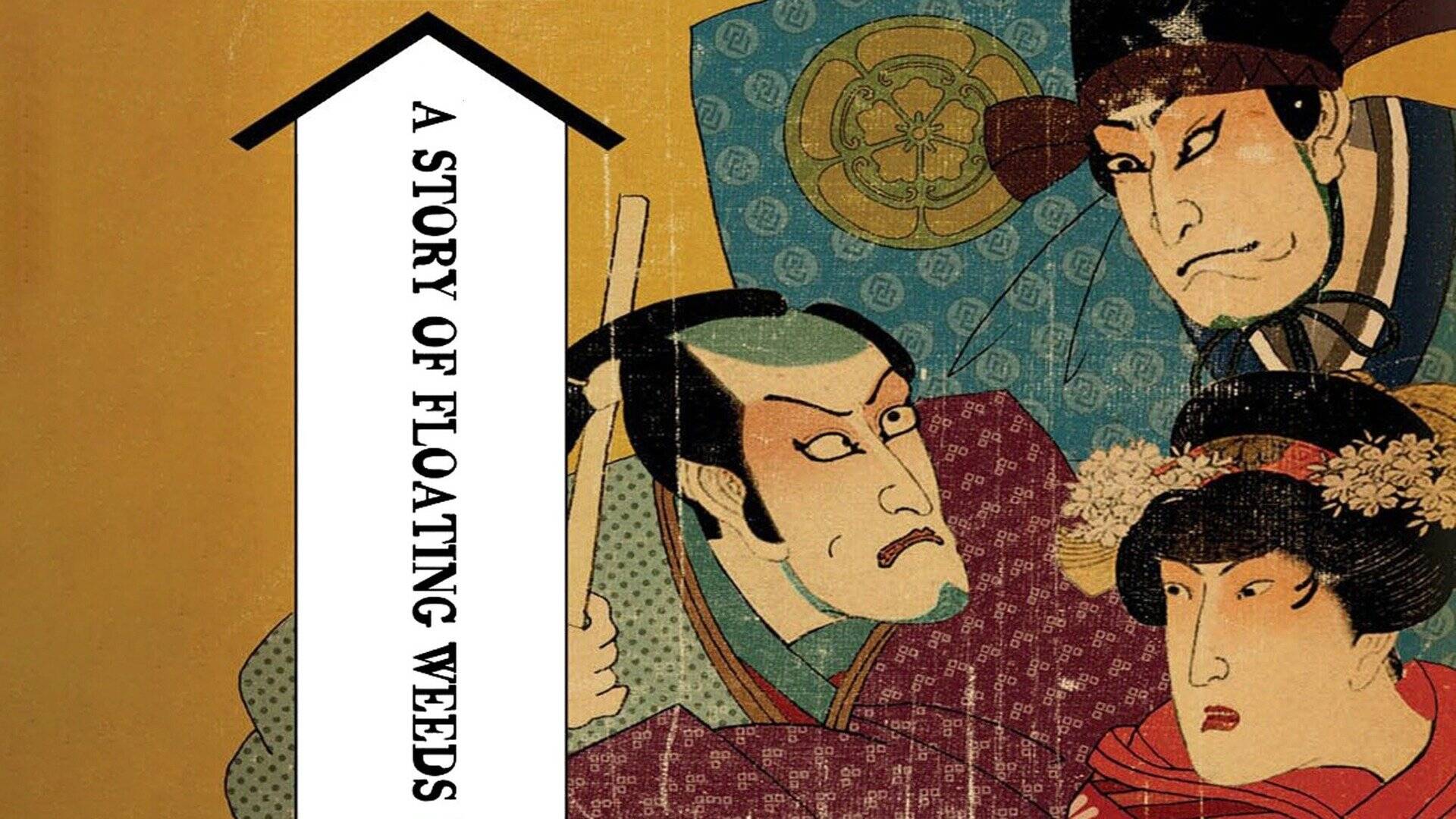
A Story of Floating Weeds, directed by the legendary Japanese filmmaker Yasujiro Ozu, is a timeless classic that showcases Ozu’s signature style and storytelling prowess. Released in 1934, this silent film tells a poignant tale of love, family, and the complexities of human relationships. Set in a small town in Japan, the movie follows a troupe of traveling performers, led by the charismatic Komajuro, as they revisit their old stomping grounds.
As we delve into the fascinating world of A Story of Floating Weeds, we uncover a plethora of intriguing facts that add depth to our understanding of this remarkable cinematic masterpiece. From Ozu’s unique directorial techniques to the symbolism embedded in every frame, this article will take you on a journey behind the scenes, revealing insights that will enhance your appreciation for this iconic film.
Key Takeaways:
- A Story of Floating Weeds is a silent film directed by Yasujir? Ozu, exploring love, family dynamics, and the clash between tradition and modernity in rural Japan. It’s a timeless masterpiece with iconic performances.
- Ozu’s visual storytelling in A Story of Floating Weeds revolutionized Japanese cinema, influencing future filmmakers and leaving a significant mark in the annals of cinematic history. It’s a character-driven narrative with a poignant and emotionally resonant storyline.
Facts 1: Directed by Yasujir? Ozu
A Story of Floating Weeds was directed by Yasujir? Ozu, a highly acclaimed Japanese filmmaker known for his unique and contemplative style.
Facts 2: Released in 1934
The film was released in 1934, making it one of the earliest works of Ozu’s extensive filmography.
Facts 3: Silent film
A Story of Floating Weeds is a silent film, capturing the emotions and storytelling through visual imagery rather than dialogue.
Facts 4: Black and white cinematography
The movie was shot in black and white, adding a timeless and nostalgic quality to the aesthetic.
Facts 5: Portrays the life of a traveling theater troupe
The story revolves around a troupe of traveling actors, exploring their struggles, relationships, and aspirations.
Facts 6: Explores the theme of love and betrayal
A Story of Floating Weeds delves into the complexities of love and betrayal, highlighting the human experiences of trust and deceit.
Facts 7: Emphasizes family dynamics
The film explores the dynamics within a family, examining the conflicts and connections that arise between parents and children.
Facts 8: Influenced by traditional Japanese theater
Ozu drew inspiration from traditional Japanese theater, incorporating elements of Kabuki and Noh into the film’s narrative.
Facts 9: Remade by Ozu himself
Ozu remade A Story of Floating Weeds in 1959 as Floating Weeds, utilizing sound and color to retell the story.
Facts 10: Has a contemplative and meditative pacing
The film’s pacing is deliberate, inviting viewers to reflect on the deeper meanings and emotions evoked by the narrative.
Facts 11: Explores the transient nature of human existence
Ozu uses the theme of transience to explore the fleeting nature of life and the impermanence of human relationships.
Facts 12: Features Ozu’s signature style of static shots
Ozu’s trademark style of static shots and low camera angles is evident in A Story of Floating Weeds, creating a sense of observational intimacy.
Facts 13: Showcases Ozu’s attention to detail
The film is marked by Ozu’s meticulous attention to detail, as he carefully constructs each frame to convey meaning and emotion.
Facts 14: Examines the clash between tradition and modernity
A Story of Floating Weeds explores the tension between traditional values and the encroachment of modernization in Japanese society.
Facts 15: Captures the essence of rural Japan
The film’s setting in a small coastal town captures the rustic beauty and simplicity of rural Japan during that era.
Facts 16: Considered a masterpiece of Japanese cinema
A Story of Floating Weeds is regarded as a masterpiece in Japanese cinema, its influence resonating throughout the years.
Facts 17: Groundbreaking use of visual storytelling
Ozu’s visual storytelling techniques in A Story of Floating Weeds revolutionized Japanese cinema and inspired future filmmakers.
Facts 18: Highlights the struggle of pursuing dreams
The film delves into the dreams and aspirations of its characters, shedding light on the challenges they face in the pursuit of their desires.
Facts 19: Features Ozu’s recurring theme of filial piety
Ozu explores the concept of filial piety, emphasizing the duty and respect children owe to their parents.
Facts 20: A poignant and emotionally resonant narrative
A Story of Floating Weeds weaves a poignant and emotionally resonant narrative that stays with viewers long after the film ends.
Facts 21: Considered a precursor to Ozu’s later works
The film foreshadows many themes and techniques that would become synonymous with Ozu’s later films, solidifying his artistic vision.
Facts 22: Influenced future generations of filmmakers
A Story of Floating Weeds had a profound impact on subsequent generations of filmmakers, shaping the direction of Japanese cinema.
Facts 23: A significant contribution to silent cinema
The film stands as a significant contribution to the silent film era, leaving its mark in the annals of cinematic history.
Facts 24: An exploration of the complexities of human relationships
A Story of Floating Weeds delves into the intricate dynamics of human relationships, portraying their joys, sorrows, and complexities.
Facts 25: Celebrated for its beautiful cinematography
The stunning cinematography in A Story of Floating Weeds captures the beauty of its surroundings, transporting viewers to a different time and place.
Facts 26: A character-driven narrative
The film’s focus on well-developed characters allows viewers to deeply connect with their struggles, hopes, and disappointments.
Facts 27: Showcases Ozu’s expertise in long takes
Ozu skillfully employs long takes to establish a sense of realism and immerse viewers in the unfolding story.
Facts 28: Explores the notion of societal expectations
A Story of Floating Weeds examines the pressures and conflicts arising from societal expectations, particularly within the context of family and community.
Facts 29: Iconic performances by the cast
The cast delivers captivating performances, bringing their characters to life with depth and authenticity.
Facts 30: A timeless masterpiece
A Story of Floating Weeds remains as relevant and powerful today as it was when it was first released, solidifying its status as a timeless masterpiece.
Facts 31: A testament to Yasujir? Ozu’s artistic vision
The film stands as a testament to Yasujir? Ozu’s brilliance and his ability to craft deeply moving stories that resonate with audiences across generations.
Conclusion
A Story of Floating Weeds is a remarkable movie that has left a lasting impact on cinema lovers around the world. With its compelling storyline, brilliant performances, and masterful direction by Yasujir? Ozu, it is a true cinematic gem. The film beautifully explores themes of love, family, and the complexities of human relationships. Its visual aesthetics, nuanced characters, and emotional depth make it a must-watch for any fan of Japanese cinema.Through this article, we have delved into 31 fascinating facts about A Story of Floating Weeds. From its inspiration to its production, to its critical reception and legacy, we have explored the various aspects that make this movie so special. Whether you are a die-hard fan or new to the world of Ozu’s films, these facts provide an intriguing insight into the making of this remarkable piece of cinema.A Story of Floating Weeds continues to captivate audiences even decades after its release. Its timeless themes and exceptional storytelling ensure that it remains an influential film in the history of Japanese cinema. So, grab some popcorn, sit back, and immerse yourself in the enchanting world of A Story of Floating Weeds.
FAQs
Q: Who directed A Story of Floating Weeds?
A: A Story of Floating Weeds was directed by the renowned Japanese filmmaker Yasujir? Ozu.
Q: What is the story of A Story of Floating Weeds?
A: The movie revolves around a traveling acting troupe led by a matinee idol who returns to his hometown, where he encounters his former lover and their illegitimate son.
Q: When was A Story of Floating Weeds released?
A: A Story of Floating Weeds was released in 1934.
Q: Is A Story of Floating Weeds a silent film?
A: No, it is not a silent film. It was made during the transition from silent to sound cinema and features synchronized sound.
Q: Is A Story of Floating Weeds considered a classic?
A: Yes, A Story of Floating Weeds is widely regarded as a classic of Japanese cinema and an important work in the filmography of Yasujir? Ozu.
Q: Is A Story of Floating Weeds available on DVD or streaming platforms?
A: Yes, A Story of Floating Weeds is available on DVD and can also be streamed on various platforms, depending on your region.
Was this page helpful?
Our commitment to delivering trustworthy and engaging content is at the heart of what we do. Each fact on our site is contributed by real users like you, bringing a wealth of diverse insights and information. To ensure the highest standards of accuracy and reliability, our dedicated editors meticulously review each submission. This process guarantees that the facts we share are not only fascinating but also credible. Trust in our commitment to quality and authenticity as you explore and learn with us.


